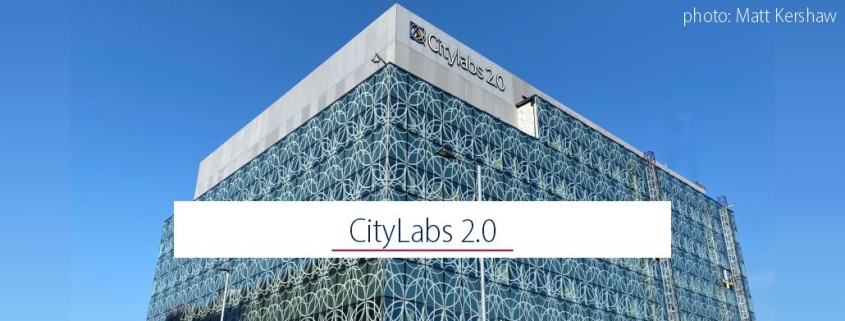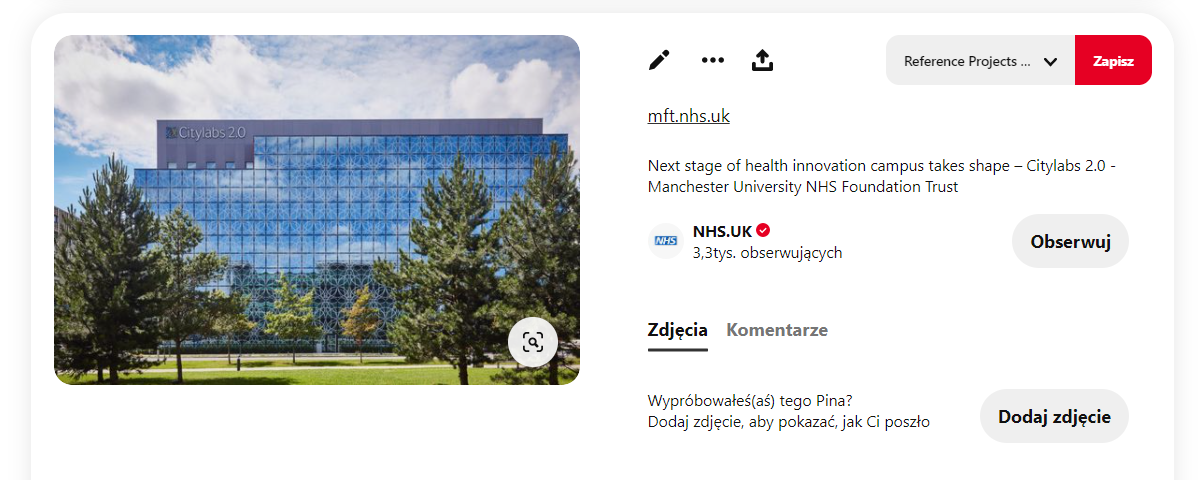CityLabs 2.0, Manchester, with digitally printed glass facade
CityLabs 2.0 is a new Manchester (UK) building opposite the Royal Manchester Children’s Hospital and Ronald MacDonald House, within the Manchester University NHS Foundation Trust – MFT’s hospital campus. PRESS GLASS delivered 3,500m2 of laminated double glazed façade units, combining a heat treated solar control glass and digital print. Bennett Architectural Aluminium Systems Ltd where the specialist façade contractor and Sir Robert McAlpine acted as main contractor.
The 9,000 sq m CityLabs 2.0 development was designed by architect Sheppard Robson in collaboration with Bruntwood, Manchester Science Partnerships and Central Manchester Foundation Trust. The building will be occupied by the life sciences firm Qiagen. The building offers Grade A office space and state of the art laboratory facilities. This investment will enable biomedical companies to grow and co-create new health products, in collaboration with the NHS and academia.
The façade IGU’s comprise heat strengthened and laminated glazing, complete with SN 70/35 HT solar control coating and a digital print. The IGU composition ensures thermal comfort, energy savings and high selectivity. The IGU’s are retained on the façade with a glass-to-glass Kawneer SG Toggle insert within the silicone edge seal of the IGU. Indeed, a specialist SG insert was extruded for the spandrel IGU’s, specific to this project.
The beautiful, modern and repeating design is made up from 8 similar circular patterns digitally printed onto the glass and perfectly matches the science environment and purpose of this building. The pattern also performs as an active component of the passive solar shading feature of the façade, helping to prevent excessive heat buildup. PRESS GLASS regularly delivered glass for this development over a 24-week period.
CityLabs 2.0 is the second step of the health + care investment strategy in the neighborhood, following the opening of the CityLabs 1.0 biomedical centre in 2015. The next phases will see the building of CityLabs 3.0 and 4.0. The whole CityLabs campus will be a world-leading hub for precision medicine and health innovation.
CityLabs 2.0 will be available for use by 2021.




